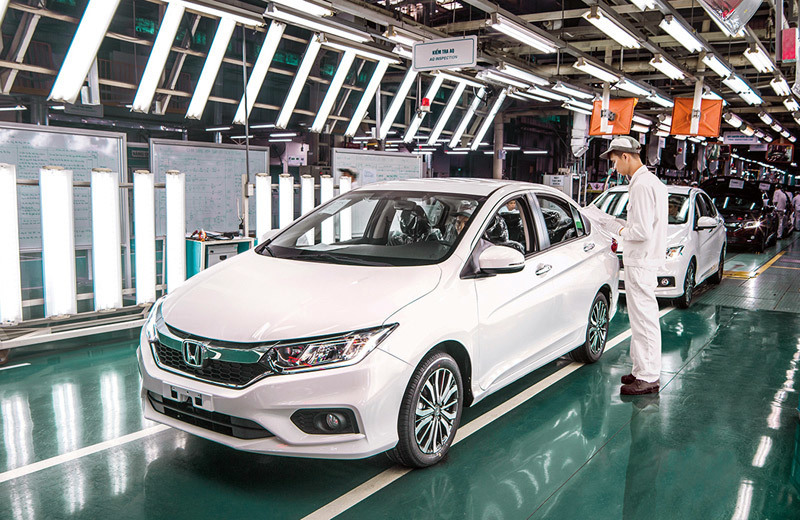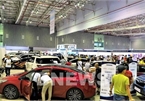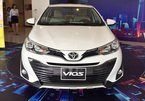Under Decree 57 which took effect on July 10, the car part import tax was removed.
The vehicle registration tax has been cut by 50 percent, applied to applications from now to the end of 2020.

The government has allowed extension of the luxury tax payment deadline, applied to domestically made or assembled cars. The government has also proposed amending some provisions of the Special Consumption Tax Law to support domestic production.
With big incentives offered by new policies, some car manufacturers have begun resuming domestic assembling instead of continuing to import cars for domestic sale.
Honda CRV, Fortuner of Toyota and Xpander of Mitsubishi, the three best sellers of the crossover, SUV and MPV market segments, respectively, have been and will be assembled in Vietnam.
Previously, Honda and Toyota decided to stop assembling Honda CRV and Toyota Fortuner in Vietnam. Instead, they imported cars from Thailand and Indonesia for domestic sales to optimize the profit. The assembling in Vietnam was expected to be costly and uncompetitive.
| All car markets in the world have seen a decline in recent months because of the pandemic. The automobile factories in Thailand, Indonesia and China face difficulties exporting products to the US and Europe. |
However, the manufacturers have changed their production strategies, resuming assembling in Vietnam after attractive policies were set.
Nguyen Van Nam, an economist, agrees that automobile manufacturers are resuming assembling in Vietnam to enjoy the investment incentives, but thinks that the manufacturers also are considering long-term development strategies.
All car markets in the world have seen a decline in recent months because of the pandemic. The automobile factories in Thailand, Indonesia and China face difficulties exporting products to the US and Europe.
Meanwhile, Vietnam is a very promising market and has been growing fast, though it remains small.
Vietnam has signed the EVFTA, which means that manufacturers assembling cars in Vietnam will receive favorable conditions to export products to the EU and enjoy preferential tariffs.
Vietnam has succeeded in attracting foreign automobile manufacturers but it needs to take full advantage of the opportunity to develop the Vietnamese automobile industry.
Meanwhile, some analysts warn that once car manufacturers do not have to pay tax for car part imports, Vietnam will fail to encourage the manufacturers to use domestic products.
Vietnam imported up to 140,000 cars in 2019 worth a total 3.16 billion, up 84 percent on-year, with the majority from Indonesia and Thailand, according to Dan Tri.
Mai Lan

Vietnam's automobile market sees 62 percent surge after social distancing
The sales of automobile surged 62 percent month-on-month in May following the end of social distancing measures, according to the Vietnam Automobile Manufacturers’ Association (VAMA).

With tax and fee decreases, automobiles will be cheaper than ever
If the government agrees to slash taxes and fees for domestically assembled cars, this will be a ‘doping dose’ for domestic automobile manufacturers and consumers.
 As Vietnam has set new policies to encourage domestic production, car manufacturers have resumed the assembling of some bestsellers in Vietnam to enjoy incentives.
As Vietnam has set new policies to encourage domestic production, car manufacturers have resumed the assembling of some bestsellers in Vietnam to enjoy incentives.